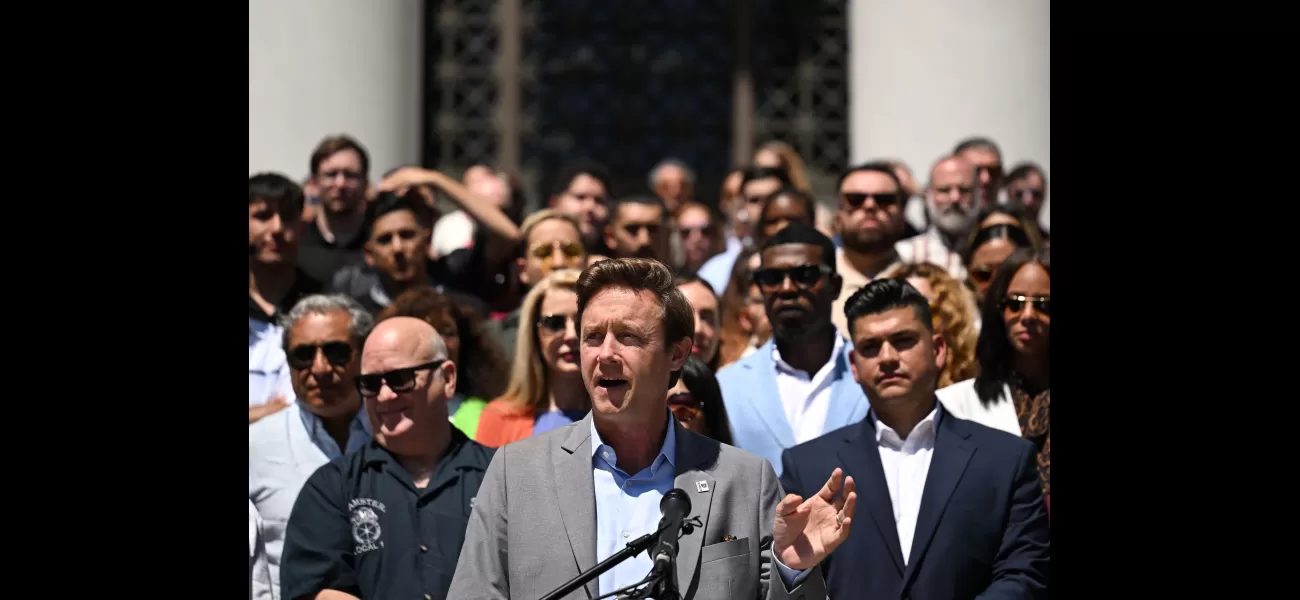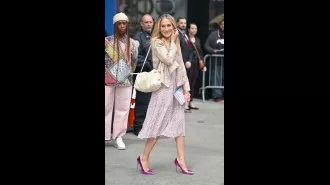Denver residents will decide on a record-breaking sales tax increase this November.
City Council members are concerned about a lack of details in the Affordable Denver sales tax plan, but acknowledge the urgent housing needs in their districts and will leave the decision up to voters.
August 20th 2024.

In November, the residents of Denver will have the opportunity to weigh in on one of the biggest sales tax proposals in the city's history. The City Council voted 9-4 on Monday to send a 0.5% tax increase to the ballot, with the aim of creating more affordable housing options in the city. This decision now rests in the hands of the people, as Denver has become one of the least affordable housing markets in the country.
Councilman Darrell Watson, who voted in favor of the proposal, stressed the urgency of the situation and the need for action. However, the specifics of how the estimated $100 million in annual revenue will be used are still to be determined. Mayor Mike Johnston and other supporters have suggested investing in programs like rental assistance and downpayment assistance for lower-income residents, and even exploring the possibility of the city becoming an equity investor in new developments to ensure affordable housing options.
During the City Council meeting on Monday, a number of amendments were made to the proposal, including clarifying the council's role in reviewing and approving the spending plan for the fund. Councilwoman Jamie Torres, who initially had reservations about the lack of clarity in the proposal, ultimately changed her vote and joined the majority in sending the measure to the ballot. Torres emphasized the need to be honest about the intentions and specifics of the proposal, but acknowledged the deep housing needs in her district and the importance of letting the voters have a say.
One of the concerns raised by some council members was the area median income (AMI) limits for those who would benefit from the tax revenue. An amendment was passed on Monday to ensure that the funds would only support projects and programs that serve renters making 80% of the AMI or below. Mixed-income developments could still receive support if the average cost of units is affordable to those making 100% of the AMI or below.
Another significant change made by the council was the inclusion of a sunset date for the tax, meaning it would expire on December 31, 2064 unless there is intervention from the council or voters. Despite this addition, four council members still voted against the measure, citing concerns about the lack of public input and the potential burden on low-income families, particularly in communities of color.
One of those council members, Kevin Flynn, has been opposed to the tax increase since it was initially proposed by the mayor just seven weeks ago. He expressed his belief that raising the cost of living in Denver is not the solution to making the city more affordable. If passed, the Affordable Denver tax would join another proposed sales tax increase on the November ballot, which would provide funding for Denver Health, the city's struggling safety net hospital. Together, these taxes would bring Denver's cumulative sales tax rate to 9.65%, one of the highest in the state.
Despite concerns about the potential for competition between the two tax measures, there is a recognition that stable housing is a crucial factor in public health. Mayor Johnston, who was present at the City Council meeting, praised the five council members who sponsored the referral measure and helped pass amendments that ultimately secured its place on the ballot. He acknowledged that there is still work to be done in communicating the purpose and potential impact of the Affordable Denver fund to voters, but he is confident that the city is on the right path to addressing its housing crisis while also maintaining its economic growth.
To stay informed about developments in Colorado politics, sign up for our weekly newsletter, The Spot.
Councilman Darrell Watson, who voted in favor of the proposal, stressed the urgency of the situation and the need for action. However, the specifics of how the estimated $100 million in annual revenue will be used are still to be determined. Mayor Mike Johnston and other supporters have suggested investing in programs like rental assistance and downpayment assistance for lower-income residents, and even exploring the possibility of the city becoming an equity investor in new developments to ensure affordable housing options.
During the City Council meeting on Monday, a number of amendments were made to the proposal, including clarifying the council's role in reviewing and approving the spending plan for the fund. Councilwoman Jamie Torres, who initially had reservations about the lack of clarity in the proposal, ultimately changed her vote and joined the majority in sending the measure to the ballot. Torres emphasized the need to be honest about the intentions and specifics of the proposal, but acknowledged the deep housing needs in her district and the importance of letting the voters have a say.
One of the concerns raised by some council members was the area median income (AMI) limits for those who would benefit from the tax revenue. An amendment was passed on Monday to ensure that the funds would only support projects and programs that serve renters making 80% of the AMI or below. Mixed-income developments could still receive support if the average cost of units is affordable to those making 100% of the AMI or below.
Another significant change made by the council was the inclusion of a sunset date for the tax, meaning it would expire on December 31, 2064 unless there is intervention from the council or voters. Despite this addition, four council members still voted against the measure, citing concerns about the lack of public input and the potential burden on low-income families, particularly in communities of color.
One of those council members, Kevin Flynn, has been opposed to the tax increase since it was initially proposed by the mayor just seven weeks ago. He expressed his belief that raising the cost of living in Denver is not the solution to making the city more affordable. If passed, the Affordable Denver tax would join another proposed sales tax increase on the November ballot, which would provide funding for Denver Health, the city's struggling safety net hospital. Together, these taxes would bring Denver's cumulative sales tax rate to 9.65%, one of the highest in the state.
Despite concerns about the potential for competition between the two tax measures, there is a recognition that stable housing is a crucial factor in public health. Mayor Johnston, who was present at the City Council meeting, praised the five council members who sponsored the referral measure and helped pass amendments that ultimately secured its place on the ballot. He acknowledged that there is still work to be done in communicating the purpose and potential impact of the Affordable Denver fund to voters, but he is confident that the city is on the right path to addressing its housing crisis while also maintaining its economic growth.
To stay informed about developments in Colorado politics, sign up for our weekly newsletter, The Spot.
[This article has been trending online recently and has been generated with AI. Your feed is customized.]
[Generative AI is experimental.]
0
0
Submit Comment





